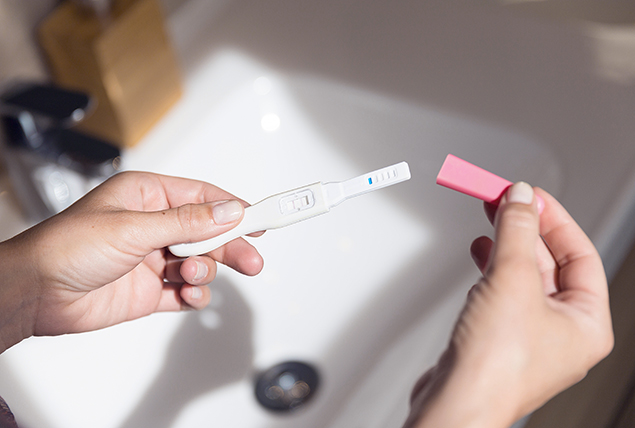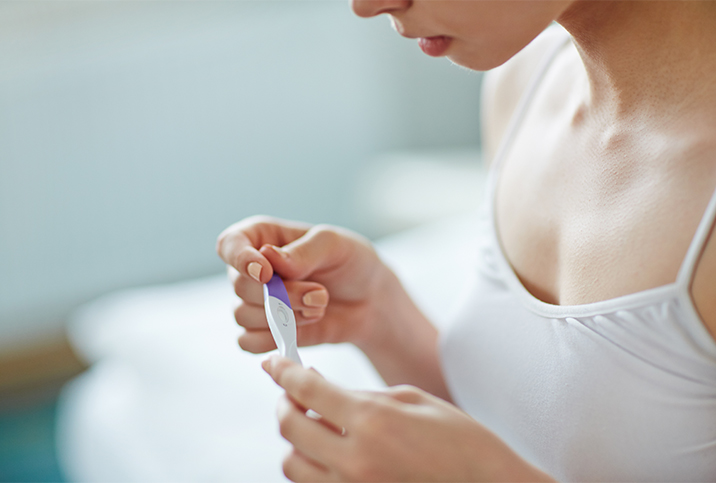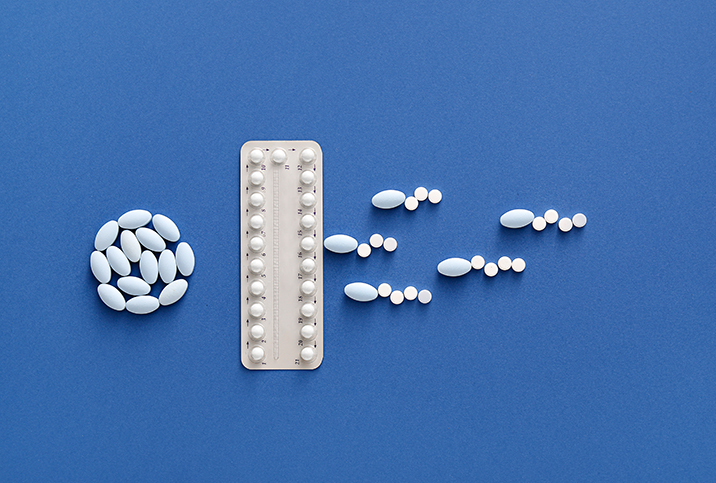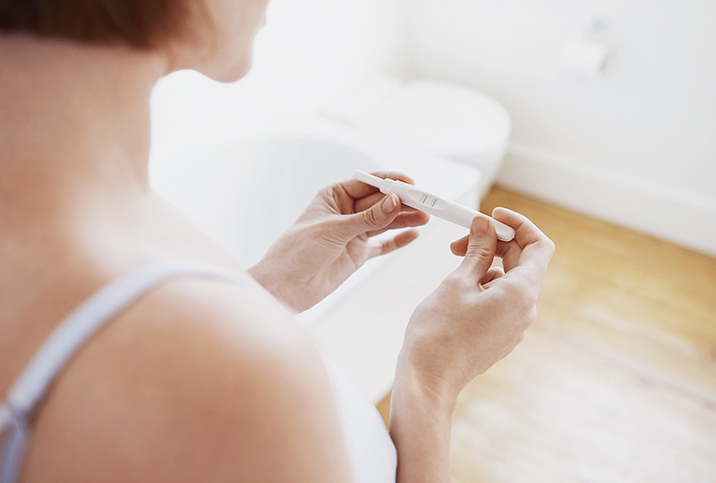Testing for Pregnancy: Be Aware of These Signs

One of the first signs of pregnancy is a missed period, said Jessica Madden, M.D., a board-certified pediatrician and neonatologist in Cleveland and the medical director at Aeroflow Breastpumps.
Pregnancy is measured from the first day of your last menstrual period, which is typically three to four weeks before you're actually pregnant. It is possible to experience light spotting 10 to 14 days after conception, a phenomenon known as implantation bleeding.
Common pregnancy symptoms
While Madden said many women do not experience any symptoms at this point, these are some common early signs of pregnancy:
- Fatigue
- Breast engorgement
- Nausea
- Vomiting
- Bloating
One of the most infamous symptoms of pregnancy is morning sickness. About 8 in 10 expectant mothers experience nausea or vomiting during pregnancy, according to the United Kingdom's National Health Service (NHS).
"It can cause an overwhelming sense of nausea that often occurs throughout the day or night, not just the morning," said Cristin Hackel, B.S., R.N.C., a nurse practitioner based in Bethesda, Maryland, and the medical director at Nurx, a reproductive and sexual health brand.
This feeling can cause vomiting, which can make life difficult for expectant parents, but there are steps you can take to manage it.
Hackel advised that while techniques to manage nausea work differently for everyone, these are tried-and-tested methods:
- Eat something bland like crackers or toast before getting out of bed as movement can trigger nausea.
- Try to eat something every few hours.
- Certain flavors, such as ginger, peppermint and lemon, can be added to water or taken as mints or gum.
- Eat protein-based snacks.
If nothing works and keeping food and fluids down is a problem, your doctor may be able to help, she said. They can check for dehydration or hyperemesis gravidarum (severe pregnancy sickness) as well as prescribe anti-nausea medications if necessary.
It is possible to take a pregnancy test from the first day of your missed period onward. Gestation is measured in weeks according to your last menstrual period. If you know these dates, you can use the NHS pregnancy due date calculator to find out approximately when you can expect your child to arrive.
The quickest way to discover whether you are pregnant is by using a home pregnancy testing kit. When dipped in a vessel of urine, the detector strip looks for the presence of human chorionic gonadotropin (hCG), a hormone primarily produced by the cells of the placenta around one week post-fertilization. Your doctor can also carry out this test.
It's important to schedule an appointment with your OB-GYN or midwife around six to eight weeks gestation, Madden said. They look at your vital signs, including blood pressure, review your medical history, obstetric history, family history, medications and supplements, and conduct a physical exam, she explained.
She added that a blood pregnancy test is typically performed to ensure your beta-hCG levels are high enough. If your visit is toward the end of the first trimester, which ends in the 12th week, then your provider may perform an ultrasound scan in the office.
In order to help prevent birth disorders such as spina bifida and anencephaly, the Centers for Disease Control and Prevention (CDC) recommends women take 400 micrograms of folic acid per day.
The American College of Obstetricians and Gynecologists (ACOG) also recommends calcium, vitamins B, C and D, choline and omega-3 fatty acids, all of which can be found in supplements created especially for pregnancy. It is important to be careful when taking any tablets because too much vitamin A, for example, is associated with possible birth defects.
Iron is also vital for building a baby, so you need approximately 750 milligrams (mg) more than usual. Your levels will be tested during your pregnancy to see if you require supplementary iron.
When your pregnancy progresses, you will be screened for potential problems that could harm you and your baby, such as gestational diabetes, group B Strep (GBS) and urinary tract infections (UTIs).
Whooping cough vaccinations are recommended during pregnancy, and you could be advised to get boosted against COVID-19 and influenza, too. Once you feel the baby kick, you can begin monitoring their movements as a way of keeping track of your baby's health in the womb.
Madden said you can stay healthy and look after yourself while pregnant in much the same way as when you are not pregnant. She recommended:
- Drinking enough water (at least eight 8-ounce glasses per day)
- Eating a balanced and nutritious diet
- Getting plenty of rest
- Staying physically active with low-impact activities such as walking, swimming and prenatal yoga
- Minimizing stress
It is very important to look after your mental health during this time as tiredness and hormonal changes, as well as worries about your baby and the change in your lifestyle, can sometimes trigger anxiety.
"Prenatal anxiety is incredibly common, particularly if you have experienced a prior pregnancy loss," explained Juulia Karlstedt, M.A., a counselor and therapist who is accredited by the British Association for Counselling and Psychotherapy (BACP) and works at Anxiety Counselling Online, based in Edinburgh, Scotland.
She advised that mindfulness-based practices can help manage these feelings and reduce your risk of developing postpartum anxiety or depression. These practices include:
- Mindful breathing
- Pregnancy-safe yoga
- A mindful walk outside
"If you notice an unhelpful thought coming up during the activity, acknowledge and name the thought, run through your five senses and then engage with the activity again," Karlstedt added.
However, if you find yourself struggling with depressive thoughts or your anxiety begins to feel "overwhelming and persistent," she recommended speaking to your healthcare provider so you can access a mental health support plan.
"One-to-one counseling, mindfulness courses and peer support can all be great resources for learning the skills you need to manage your anxiety through your pregnancy," she said.
While pregnancy can be a joyful time, it comes with a unique set of emotional and physical changes that many parents find challenging at times. As well as looking at yourself, confiding in a partner, friend or family member when there is something you need is imperative, because they may have experienced the same thing themselves and can give advice or support.
Remember that your medical team is available if you have any medical worries or problems during your pregnancy—don't hesitate to ask.


















